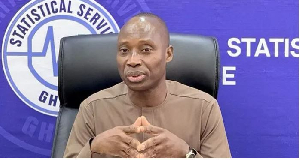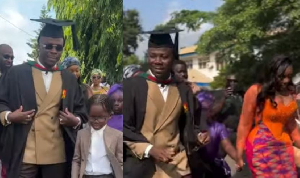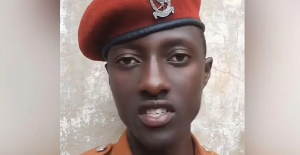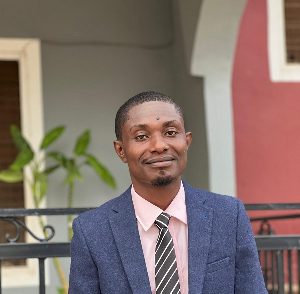This is a follow-up to my last article on the topic. There were some very civil and well-thought out responses to the concerns I raised in that article. I was greatly enlightened by these responses and I am very grateful to all those who made them. Some people still managed to insult me and accuse me of siding with the offenders and wanting to undermine Anas, but, mennka whee…
One thing I realised was that both those who categorically stated that there was nothing wrong with Anas’ methods and those who raised eyebrows against those methods do not really know all the methods that Anas actually used in his investigative effort. We have not watched Anas’ movie at the AICC. It is not (yet?) available on YouTube. Yet we are all making categorical statements on the legality, or otherwise, of those methods.
It is possible that if we watch the movie, we may change our views. Even if we watch the movie, we cannot be certain that we will see ALL the methods that Anas employed in his effort to flush out the wrongdoers. He recorded lots of footage. He carefully edited these to produce a three hour narrative that can be understood by the viewing public. We don’t know what he left out of the editing process. He may have left out footage for technical reasons: sequences that are not clear since he was using hidden devices. He may have left out footage that does not support his narrative. (This is a theoretical point suited to academic discussion.) He may also have left out footage to protect a trade secret to which he thinks he has proprietary rights or because they were in the nether regions of the law where he was not sure of his own footing. There are many reasons why he will choose one scene and not another. He is not obliged to tell us all these reasons.
One common argument the non-critical defenders of Anas are saying is that the police routinely conduct sting operations, use the methods Anas uses, etc, to catch offenders and bring them to justice. The implied conclusion is that Anas also has the right to use the same or similar methods. But the point is that Anas is a private individual, not a public official vested with such powers. Society gives the security forces special powers that will help them in the performance of their duties. These powers are not available to private individuals. The police can investigate crimes, carry guns, make raids and use appropriate force to apprehend offenders who resist arrest. Private individuals do not have such powers. Private individuals have the civic duty, indeed an obligation, to report crimes and aid the police in their work. But individuals do not have the right or obligation to arrest offenders. Registered private security officers in many countries may have some powers of apprehension or of interfering in crime but they almost always have to bring in the police to do the actual arrest and eventual prosecution of offenders. There are laws guiding these things.
Even so, the police or security forces can be criticized for the wrongful use of their powers. They have to account for the methods they use to arrest people or to prevent crime. And yet some people are arguing that we should not even discuss the methods of Anas, a private individual doing his chosen vocation of investigating corruption. They are saying we should give him a blank cheque since he is rendering such tremendous service to society. He can do no wrong. But there are other citizens who think otherwise and they do so NOT because they don’t like the results of Anas’ work or because they are seeking to “pull him down”. It is only because they think some of Anas’ methods MAY fall within the grey areas of the law and we need to discuss them. This discussion may even benefit Anas in the further pursuance of his work. The young man, himself, is aware of this and has very wisely acquired a degree in law. It will help him walk on the right side of the law.
Some of us are also arguing that since corruption is so deeply embedded in our culture/society and we are desperate about it, we require desperate measures to fight it. This argument seems to be based on sentiment, not on legality or even on justice. When can we suspend certain aspects of the basic laws of the land in order to deal with an exigency? When does a needed desperate measure cross an acceptable line?
A related argument is that since the guilt of the fallen justices is so obvious (indeed, even the justices themselves are not denying this guilt and are basing their defence on peripheral concerns) and the need to fight corruption in our society so urgent, the national debate should not concern itself with idle prattle about the rights of man (“shut the f..k up!”). This may be so but it will then seem we will be acting based solely on our collective anger which is prompting us to some gut reactions: crucify the offenders who have brought such shame on us as a nation and build monuments to the hero who represents the better part of our natures! But some sober reflections will be in order too.
Anas has established the guilt of the fallen justices beyond all reasonable doubts. He has provided us with the ocular proof. These guys were caught fiiilifiiili…The argument is not about that. It is about whether Anas, in his effort to establish the guilt of the justices (and the rest of us, yes!!!), may not have flouted some of our basic laws. My point has been whether, and how, we should discuss those methods.
In his TED talk (available on YouTube) Anas stated that he is not just a passive investigator of wrongdoing. He is committed to bringing offenders to justice. His three aims are to “name, shame, and jail”. He follows up his investigations by seeing to it that a properly constituted court puts offenders away based on his findings. That is all the more reason why it is necessary that his methods should also stand the scrutiny of the same courts that are putting his victims behind bars.
I don’t have any sympathy for the view that says Anas should not have shown the film to the public. I think Anas was even kind to the fallen justices by showing it to a “limited” public. He could have packaged the juiciest parts of his findings and posted them on YouTube where millions the world over could have seen them as often as they want. And no court in the world can ask him to take them down.
I wish to conclude by saying that I, like the vast majority of Ghanaians, fully approve of what Anas is doing and want him to continue doing it. But I also want him to make sure that, while he is at it, he will keep to the right side of the law so that those who now “shame” him for his methods will have no reasons to do so. I know he will do that. He has the experience and knowledge of the law to ensure that.
Yes, Anas is watching you. Do the right thing! But who is watching Anas?
Kofi Amenyo (kofi.amenyo@yahoo.com)
Opinions of Thursday, 1 October 2015
Columnist: Amenyo, Kofi














